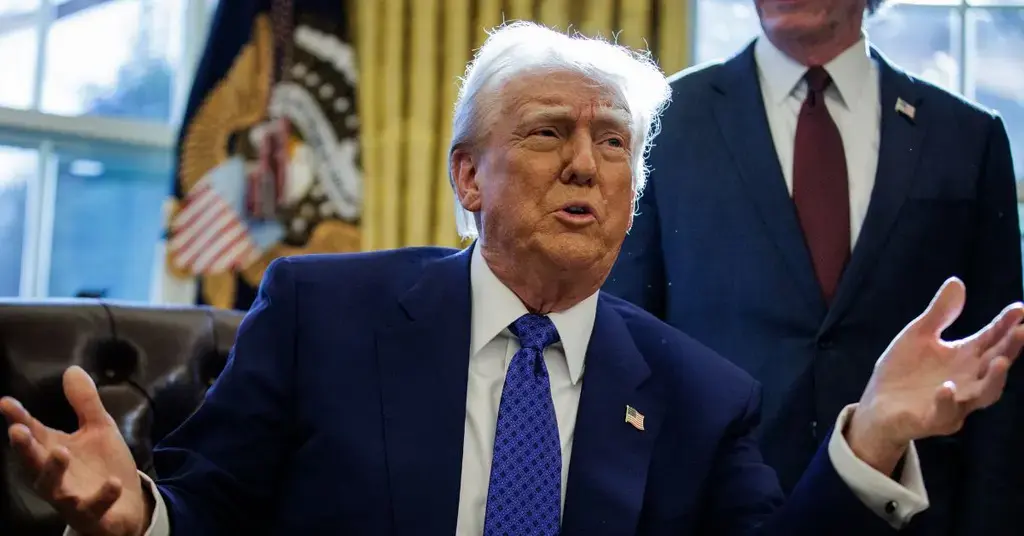
cover 77

cover 77
Donald Trump may have discovered a constitutional loophole that could potentially extend his presidency by another 12 years.
Legal scholars have debated the legitimacy of this strategy for years, and in recent months, it has been increasingly referenced by both members of Congress and devoted MAGA supporters
The possibility of Trump serving a third—and even a fourth—term until January 2037, when he would be 90 years old, is not as far-fetched as it may seem.
It all hinges on how the term ‘election’ is interpreted in the 22nd Amendment and the unwavering loyalty of Vice President J.D. Vance.
In this scenario, Vance could select Trump as his vice president for the 2028 election. If elected, Vance could then resign immediately upon taking office, allowing Trump to assume the presidency once again.
Of course, this strategy would also require Trump to maintain enough popularity to secure victories in two more election cycles
The full text of the 22nd Amendment states:
‘No person shall be elected to the office of the President more than twice, and no person who has held the office of President, or acted as President, for more than two years of a term to which some other person was elected President shall be elected to the office of the President more than once.’
Ratified in 1951, the amendment was introduced as a direct response to Franklin D. Roosevelt’s unprecedented four consecutive election victories during World War II.
Shortly after the 22nd Amendment was ratified, President Dwight Eisenhower expressed doubts about the wisdom of term limits.
He argued that voters “ought to be able to choose for its President anybody that it wants, regardless of the number of terms he has served.”
Eisenhower even considered the possibility of running as Vice President in 1960 and then reclaiming the presidency for a third term.
“The only thing I know about the presidency the next time is this: I can’t run,” he said. “But someone has raised the question that, were I invited, could I constitutionally run for Vice President?”
According to Eisenhower, the Justice Department later reviewed the matter and determined it would be “absolutely legal for me to do so.”
President Harry S. Truman also criticized the 22nd Amendment, arguing that it turned every second-term president into a “lame duck.”
Ronald Reagan went even further, calling the amendment “ridiculous” and claiming it “interfered with the democratic rights of the people.”
Interestingly, the final language of the 22nd Amendment was less restrictive than earlier drafts, which would have completely barred a third term under any circumstances. The original wording stated that anyone who had served as president for “365 calendar days or more in each of two terms” would be ineligible to hold or act as president for any part of another term.